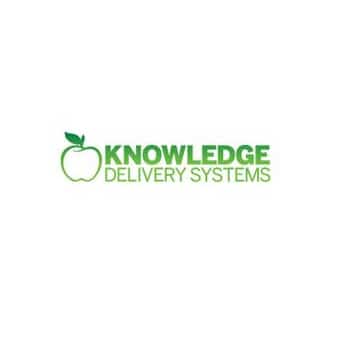Q&A: Online Courses Improve PD For Educators & Schools

Alvin Crawford, CEO of Knowledge Delivery Systems (KDS), shares with Getting Smart how online professional development courses can improve outcomes for teachers, schools and more.
SC: How does learning online improve the delivery, access, and consumption of professional development (PD) for schools and teachers?
AC: Online addresses delivery, access and consumption by fixing some key challenges with professional development; alignment, fidelity and scale. Online allows schools to tailor professional development to the needs of particular teachers based on defined student achievement results and teacher proficiency needs.
It also allows districts to tailor the support using different blended approaches to make sure that teachers get the right level of support and follow up with coaching, observation and feedback. For example, a new teacher may receive the same course as a master teacher, but the master teacher may observe the new teacher and provide feedback on how to more effectively apply that approach to their classroom teaching.
Often in training, the trainer approaches to traditional professional development, the quality of the trainer may be uneven, some good and some very poor trainers. With online PD, a significant investment is made in making great content with an expert in a particular area of practice, which can then be delivered to all staff with no loss in fidelity of content.
With online, teachers consume professional development when they are ready to actually receive it, so retention is high. A district can deliver professional development to all teachers or a target group of teachers immediately without worrying about trying to coordinate teacher schedules, in-service days, substitutes, etc.
Overall, online professional development can be delivered to a larger audience in a shorter period of time than traditional face to face training, at a fraction of the cost. As for engagement, there are opportunities to collaborate with peers, self-reflect and answer assessments to demonstrate mastery. Often, courses are delivered to districts and supported by modeling, observation and feedback to insure that what was learned is effectively implemented in the classroom.
SC: How can online courses better expand school offerings for professional development?
AC: Online courses allow teachers to have access to national education thought leaders anytime through the year to learn the latest research proven approaches to content and pedagogies so that they can apply those to their classrooms and improve practice, immediately. A school is often limited by the expertise available within their walls. Online courses enable teachers to find the expertise that they need and enroll, just in time, to learn directly from the expert. A robust catalog of courses enables schools to expand their support to teachers without a significant investment of resources.
SC: How can online professional development courses save schools money during the summer months?
AC: Online professional development during the summer reduces costs of substitutes, in-service days, instructional time away from students, travel and other expenses related to PD. The cost of online professional development is significantly less than face-to-face training, as well.
SC: In what other ways is online learning more beneficial during the summer months?
AC: During the school year, teachers are very focused on the instructional needs of students. Summer provides a much-deserved respite where teachers can focus on their needs. Teachers can leverage this time to learn strategies to use to become more effective teachers. Summer PD also extends the collaboration efforts of teachers by allowing them to collaborate virtually as they learn new materials.
SC: What advice would you give to schools interested in offering professional development courses online?
AC: The key to online PD is similar to offline, FOCUS. Your programs should be focused on helping your staff transform in the areas that are most strategic to the district. Don’t look at online professional development as just one more thing that you’re doing. Develop a set of expectations and support around an extremely important area of focus to guarantee success on this project. Once you’re experienced success, you’ll see how you can apply online and blended models across all initiatives to both save money and meet the strategic objectives for your staff.
SC: What advice would you give to educators interested in taking online professional development courses?
AC: Not all online courses are created equal. Research says that it takes 49 – 50 hours of professional development on a particular content or pedagogy to change teacher practice. Some courses are 45 minutes in length; others are 45 – 60 hours. Some courses are flash based (PowerPoint style with readings), other are video based and include classroom footage of the teachers in action. Make sure that the course goes deep enough to provide you with the knowledge and skills you’re looking to acquire. Also, make sure that you are able to obtain credit, either recertification or graduate credit to support your continuing education needs.
SC: In what ways can learning through courses online be social?
AC: Online learning can be very social. Most courses have discussion forums where participants are required to collaborate with their peers taking the course. There are often assignments for peer review, where participants provide collaborative feedback to each other on lesson plans or projects. In addition, chat and engagement with the course facilitators are often part of an overall course experience. In our blended models, participants work through the content online, supported by face-to-face sessions to share and reflect on the materials. Participants also have an opportunity to work with coaches who take time to model exemplary practice, observe implementation of the new ideas and provide effect feedback to participants to further their practice.






0 Comments
Leave a Comment
Your email address will not be published. All fields are required.